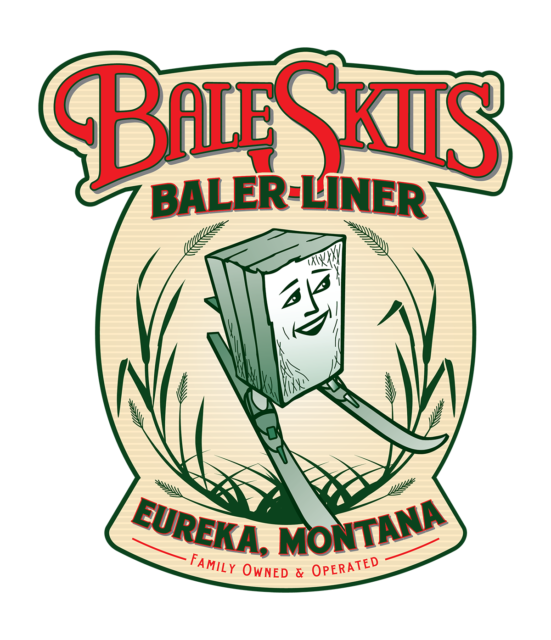I was looking at an old photo of the 1943 Rich Valley (VA) Steers football team the other day. The high school closed in the mid-1980s. My uncle was on that team and went on to play at Emory and Henry College. As I looked at that championship team and their perfect record, I thought it was likely that, while some of their opponents thought they had a small school with limited talent in front of them, they likely left knowing that a tough group of farm boys is hard to beat.
Farming and sports both require some grit, brains and luck. Being physically tough is important, but being mentally tough makes a bigger difference. In farming and sports, if you give me a choice between talent and heart, I’ll take heart every time.
I have always told others the best way to teach people how to drive cattle is to teach them good defensive basketball. First of all, unlike football, you can’t just grab your opponent and push them where you want them.
The same thing applies to cattle; you can’t literally grab a bull by the horns and drag him around. Like basketball, you deny all possible ways around you except the one you want them to take. You make it seem like the path chosen to the easiest and best way to proceed.
You also don’t do too well when chasing cattle or opposing players. If you do lose containment, the best thing to do is turn the opposite way and get back in front of your opponent. Just like in old Westerns, you got to “head them off at the pass.”
Sixty percent of our family are coaches; the dog and I are the only holdouts. Still, we see a lot of the behind-the-scenes work that goes into a profession that, like farming, is not easy. Like farming, the amount of work you put into sports, both as a coach and a player, is very important.
But, like farming, hard work doesn’t guarantee success. My dear wife has coached JV girls basketball at our local high school for over 20 years. She has over 250 wins to her credit, but I can tell you from personal observation that she worked as hard or harder on a team that finished with a 9-12 record than she did on teams that went 22-0 and won the district title.
Sports and farming require everyone to know their roles. The owner or manager has to be the coach. They not only have to make sound decisions; they need to have the respect of their players. Managing is like painting the church parking lot. You can’t have one person painting lines north and south and another painting east and west. When they meet in the middle, it’s a mess.
The manager develops the game plan and calls the plays to execute that plan. They also need to occasionally rethink those plans and adjust if needed. If colleagues or players do not listen to the plan and act on their own, they need to be “benched.”
Managing a farm and coaching a team also requires analyzing and sometimes taking calculated risks. Again, these risks mean that the manager/coach is counting on everyone doing their best and following directions. Player (or worker) freelancing is not a welcome input.
Like coaches, farm managers need to devote time to learning new ways and technologies. They need to study the ways successful people do their jobs. While not a Crimson Tide fan, I really appreciate the way coach Nick Saban goes about things. I especially like his approach to practice. “You don’t practice until you get it right; you practice until you can’t get it wrong.”
Whether you are the farm manager or the farm worker, attention to detail is terribly important. Keeping things neat, clean and well-maintained helps make work safer and more efficient.
Even within the ranks of the farm staff or players, everyone needs to know their responsibilities. Whether they might be chasing the ball or following each other around in the farm truck, the best results happen when people trust each other to handle their responsibilities while they do their tasks.
Another key similarity is that nobody is interested in what you used to do. Telling the “coach” how the farm you used to work for did things isn’t a good idea and usually is counterproductive. Applying instructions and following directions help get things done by keeping everyone on the same page.
This goes for family life as well as farming and sports, but everything gets easier when everyone works together and supports one another. Every team and every farm has its strengths and weaknesses; however, infighting and backstabbing are effective ways to eliminate any advantages the farm or team enjoys.
Getting along is most important when things aren’t going that well. If you farm or play sports long enough, you are going to have some bad days. It isn’t fun to think about, but in sports, no matter how successful and talented you are, if you make the playoffs, (unless you win a state championship) your final game will be a loss.
Same thing in family farming. If you farm long enough, you will lose a family member. Eighty percent of all tractor-related deaths involve an operator with many years of experience. If you live on a tractor, the chances of you being on that tractor when something goes wrong are increased greatly.
As most of you know, I lost my own father to a farm shop accident. He pretty much lived in his shop, so it really isn’t that much of a shock that he spent his final day on earth there. This brings us to a final thought on how farming and sports are alike.
Keeping your mind and body safe and sound is an essential part of a long career. A close second is using as much personal protective equipment as possible. Use goggles, face shields, earplugs or muffs, gloves and protective footwear, and avoid loose-fitting clothes or jewelry that can get caught in equipment.
Teams and farms are both dependent on having the right people in place and keeping them there as long as possible. Do your part by keeping yourself off the injured reserve list!









